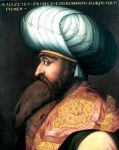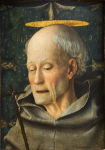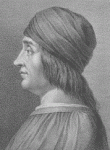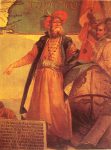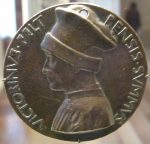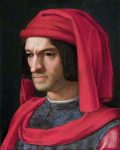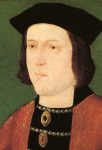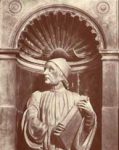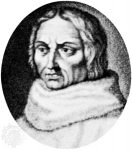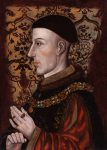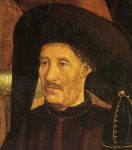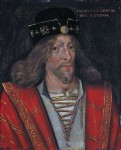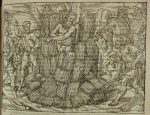Florentine Architect and designer. He embodied the Renaissance ideal of "virtu" by mastering nearly every field he touched, including philosophy, literature, music, and art, as well as architecture.
Ottoman Sultan. After his succession to the Sultanate in 1389, he enjoyed many military successes, besieged the Byzantine Emperor at Constantinople for a decade, and defeated a crusader army. Then in 1402, Timur (Tamerlane), the legendary ruler of the Central Asian empire centered on Samarkand, tricked him by marching around his forces and poisoned his water sources to the rear, so that the Ottoman soldiers entered battle in poor condition and were defeated. Bayezit, previously known as the "Thunderbolt," was captured, treated with courtesy by Timur, but had to watch helplessly as his women and possessions were divided among his foes. He died shortly thereafter, a poignant reminder of the fickleness of fate and the impermanence of pomp, power and conquest.
Explorer. He sailed the coast of North America.
Florentine ruler. He was a somewhat parsimonious but important patron of the arts.
King. His return to England from exile was an act of great courage.
Chronicler and poet. His work expressed high chivalric ideals.
King. His sudden "growing up" and courage at the battle of Agincourt is chronicled by Shakespeare.
Sponsor of exploration. He sent ships to explore the African coast.
Savior of her king and country. While still an adolescent, she acted on inner voices commanding her to save France from English forces. Remarkably, she succeeded in rallying the dispirited French forces, beating back the English, and leading the uncertain French heir to the throne to be crowned at the Reims Cathedral. She was then captured by the English and burned as a witch. The Roman Catholic Church canonized her in 1920.
Author. Mother of fourteen and a controversial religious figure, she wrote the Book of Margery Kempe, a spiritual autobiography.

